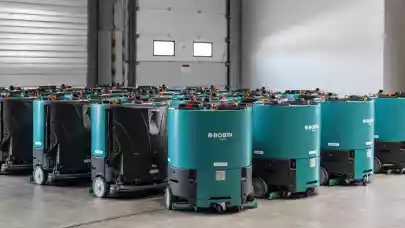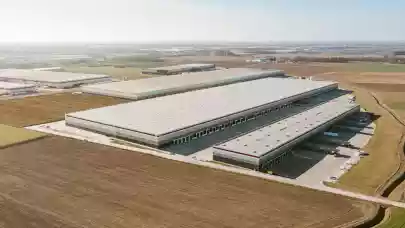
Student housing, co-living and hospitality properties continue to shine in the CEE region. Despite some legal discrepancies, heavily undersupplied, they remain the assets sought-after by investors, claim the experts of CEE Property Forum 2022.
The discussion panel has confirmed the great condition of the PBSA sector, which seems to be resistant to most of the current economic threats. According to its moderator, Stefan Kolibar, Chief Partnerships Officer at BONARD, most of PBSA assets across CEE countries are now 95-100% occupied. This data was acknowledged by Harald Hübl, Founder of greenturtle: „Basically, occupancy has returned to the 2019 levels. The dormitories are currently fully occupied, and I mean physically, not just simply fully rented. The bright side of all the things that happened - including the pandemic – is that we all finally found out that studying is something that you have to do physically on-site. It is not something you can do virtually in a long-term manner. It became very clear over the pandemic that people really want to interact with other students”.
The students seem not to be hindered by energy-related price increases, which in CEE countries may be as high as 10-15%. This stance is appreciated by investors, which consider PBSA properties a safe investment. „It is a new asset class”, said Péter Számely, Head of Real Estate Finance CEE at HYPO NOE and RICS Austria Ambassador. ”And during the pandemic, it has been seen that the investors are turning towards new asset classes. Every lender is as important, but if someone falls out, then it has little impact on cash flow - you still have almost full occupancy for two or three semesters. Steady cashflow is something that is always considered attractive by the investors”, said Számely.
Rising energy costs are also mitigated by modern and innovative construction materials and space-efficient designs. „Nowadays, I see up-to-date student houses that are very energy efficient thanks to proper insulation, air tightness etc. But it is also about smart square meter utilization. For example, a 50 square meter flat in an old building offers the same functions and amenities as ours, which is 25-28 metres big. We are also actively teaching students, how to operate the building properly and be aware of media consumption”, commented Bálint Botos, Managing Partner of Forestay RE Fund Management.
However, there are some legal issues, that need to be addressed in the forthcoming future. „We see in the whole CEE region, that regulators are not following the trends at all. The legal regulations on student housing are quite different in every country, there is a lot of confusion everywhere. In Slovakia, for example, the legal definition of dormitory extends only to university-owned or state-owned properties. So such a thing as a private dormitory doesn't really exist. You can get a construction permit to develop the dormitory. But a private company cannot really operate it, so the owners have to choose between running the business as an apartment rental or as an accommodation service. And of course, it does have a lot of implications. If you want to operate an accommodation service, you also have to provide certain services. There is more - the first question I usually get from potential investors is about the VAT tax rate; it is also different everywhere. Generally, the dormitories should be exempt from the VAT tax, but private ones don't really fall under this definition”, said dr. Dániel Ódor, Partner at international law firm Taylor Wessing.



